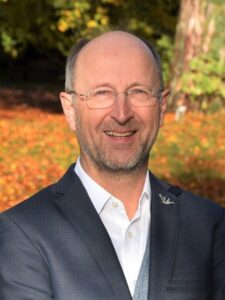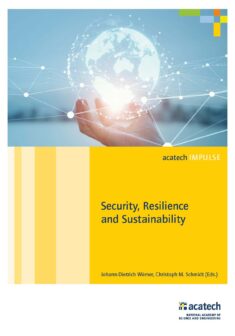Sea change in science and engineering? – acatech discusses the topic of military technology in the Evangelische Akademie Tutzing
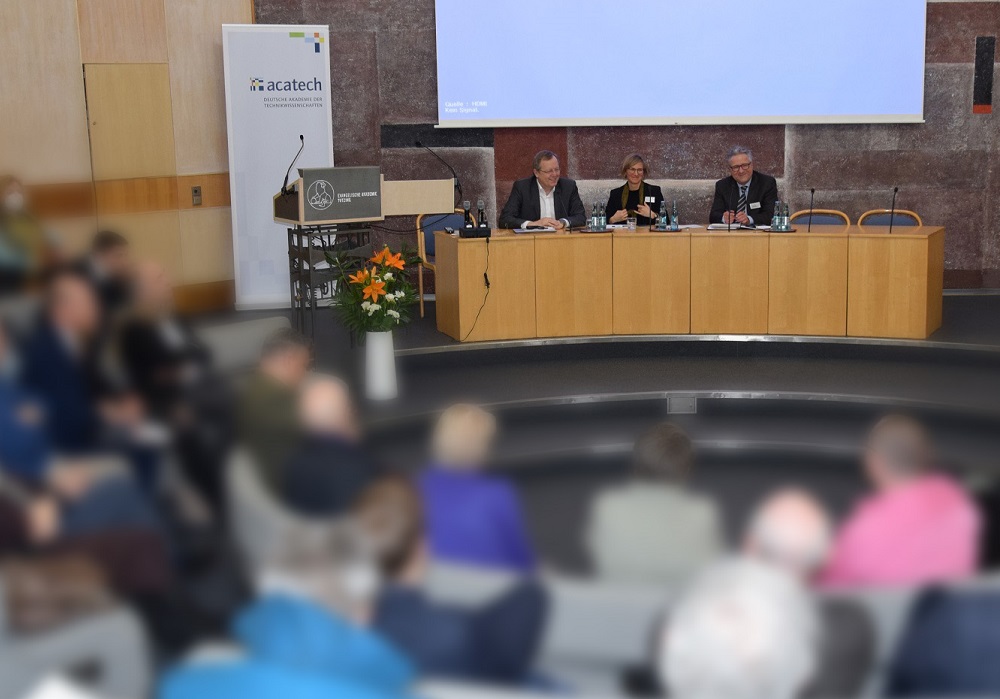
Tutzing, 10 March 2023
The situation regarding security policy in Europe has changed. New threat scenarios are arising that are complicating the traditional distinction between war and peace more and more. The European Union’s Strategic Compass speaks of “The return of power politics in a contested multipolar world”. It calls for joint efforts and European investment in technology and infrastructure. But what does this mean for science and engineering, and what military technology does Europe need? These were the topics of discussion at the joint conference of acatech, Institut Technik-Theologie-Naturwissenschaften (TTN) of LMU Munich and the Evangelische Akademie Tutzing, which was held on 27 and 28 February in Tutzing.
War and peace – a matter for the church, too
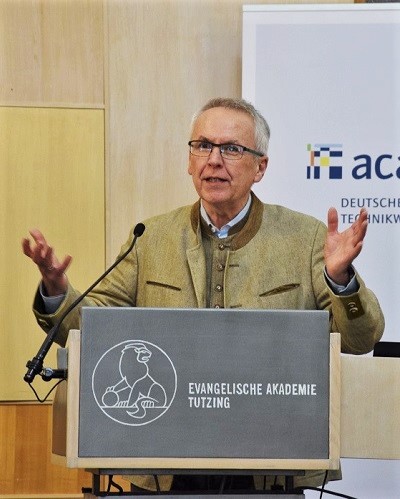
Director of the Evangelische Akademie Tutzing, Udo Hahn, emphasised that the Protestant church, too, should give its perspective on matters of war and peace. A discussion on armaments and military research is necessary, he said, as other options are going no further at present. Drawing on the speech made by President of Ukraine Volodymyr Zelenskyy at the Munich Security Conference, Mr Hahn compared the Russian invasion of Ukraine to the biblical battle between David and Goliath. This story primarily describes defending against a stronger opponent, the essence of it being that smart action is superior to brute force. He introduced the subject of the conference as the role of military technology (a role that has changed due to this much-mentioned turning point in defence policy (Zeitenwende) and, by extension, the role of science and technology.
Debate within the scientific community is also needed
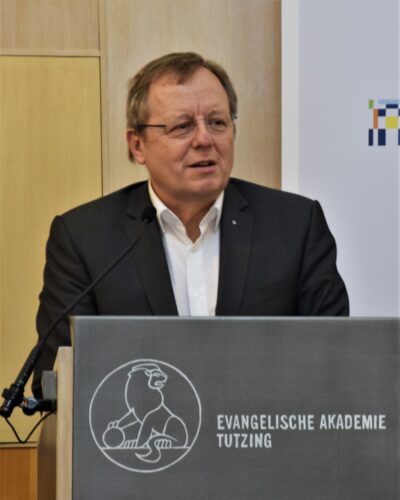
acatech President Jan Wörner called to mind that a strong peace movement and the idea – driven by economics and the quest for peace – of “change through rapprochement” led to a policy of détente for a long time. In the decades since then, colleges and research institutions put into effect civil clauses, i.e. voluntary commitments only to engage in non-military research. Jan Wörner recommended rethinking overly categorical civil clauses. Sure, research should be restricted to peaceful purposes, but they also include defence capabilities. Debate within the scientific community is necessary, he said, as the decision lies with the universities.
Ultimately, Germany, together with its international partners, must strive for strategic sovereignty – both economic and in terms of security policy – and, to that end, systematically strengthen security, resilience and sustainability. Jan Wörner advocated a broad interpretation of the concept of security: the term encompasses not just military security but also “safety” and “security” in the broadest sense, consisting of internal and external security as well as security of supply and operating safety. He went on to say that the freedom of each and every country to choose its international partners is more important than the sovereignties of individual players in specific areas. National egocentrism, he asserted, is the cause of, not the solution to, current conflicts.
Sea change in security policy: challenge for defence strategy and armaments policy in Europe
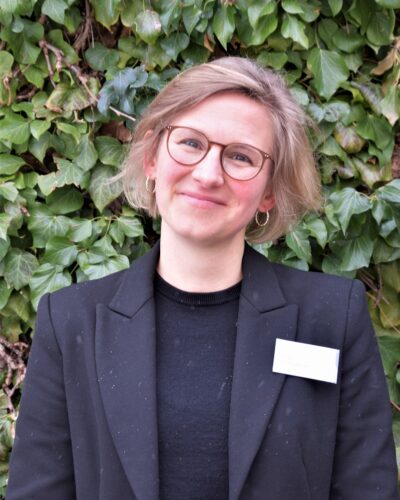
Pia Fuhrhop from the “Security Policy” research group of the German Institute for International and Security Affairs (SWP) spoke about the international security situation, the strategic responses from the EU, NATO and Germany as well as about challenges concerning armaments policy. According to her, Europe and Germany are facing uncertain and conflict-ridden times. The European security environment is characterised by multipolarity, geopolitical competition and crises on its doorstep. Internal and external security, she said, are more intertwined than before. The high level of demand for procurement and research should be pooled at European level and funded collectively. For this to succeed, she went on to say, the EU and nation states would have to reform the associated processes. Otherwise there would be no chance of a strong independent Europe in terms of security policy. In addition to European cooperation, a sea change in security policy calls for staying power and, above all, solid concepts. It’s not enough simply to spend more money. According to Ms Furhop, funds have to be appropriated better; that is, in a more directed and coordinated way.
Defence research and technological sovereignty
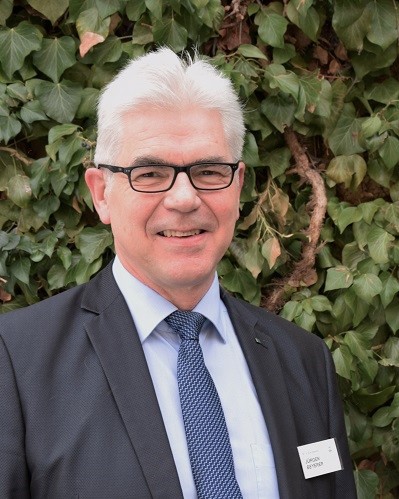
Jürgen Beyerer, managing director of the Fraunhofer IOSB Karlsruhe and chairman of the Fraunhofer Segment for Defense and Security VVS, believes that the separation of civil and military security we typically see in Germany is politically motivated. However, security, he said, is an inseparable concept: it faces natural, technical, criminal, terrorist and military threats and must therefore be protected across all of these areas. In other words, security requires both civil and military protection. If one of these aspects falls down, then security as a whole is put at risk. Similarly, he said, it is hard to draw a line between internal and external security. According to Mr Beyerer, research and research funding must take account of these realities: instead of maintaining artificial divides, synergy must be created. It would not be possible, he said, to completely rule out dual use, as many technologies would be available to all interest groups by virtue of open source. He gave a number of examples of how new technologies also change military technology. Quantum research facilitates new forms of secure communication and of quantum imaging: detection systems that cannot be detected by the target.
Defence research, in Mr Beyerer’s opinion, must be greatly stepped up. Otherwise it will not be able to keep up with the increased pace of technological change. This means that Germany needs to have its own strong research, development and application in such key fields.
Ethical challenges of AI in armed conflicts
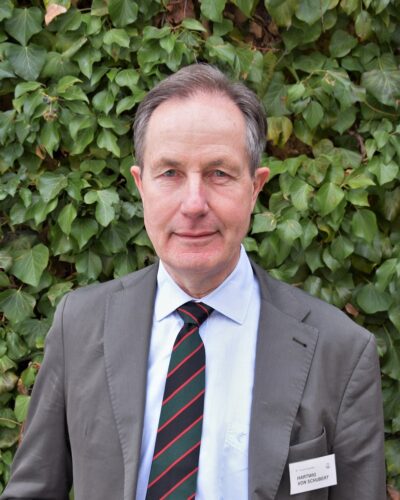
Hartwig von Schubert raised the issue of ethical challenges posed by the digital transformation in armed conflicts. The External Lecturer at the Institute of Systematic Theology of Universität Hamburg and former Protestant Military Dean at the Bundeswehr Command and Staff College Hamburg expanded on his point: in developing digitally enabled military command, the legal ethical principles of international humanitarian law and the rules of Hague and Geneva Law must be embedded in the system architecture of modern weapons systems. In cases where weapons systems use AI, the decision on how they are deployed must still rest with humans. Successful deployment must be empirically tested on a regular basis, said Mr von Schubert. Having clear hierarchical levels, including in the case of time-critical automation of functions, serves to limit their effect in a clear and binding way. In this respect, he said, Germany should set a good example, regardless of whether international consensus is reached concerning the standards and limits of the use of AI in weapons and systems management. A digital arms race – with catastrophic risks – must not be allowed to come about. Sensible governments must therefore agree arms control and disarmament measures, including for the introduction of AI in military technology, said Hartwig von Schubert.
Security research at a “special” university
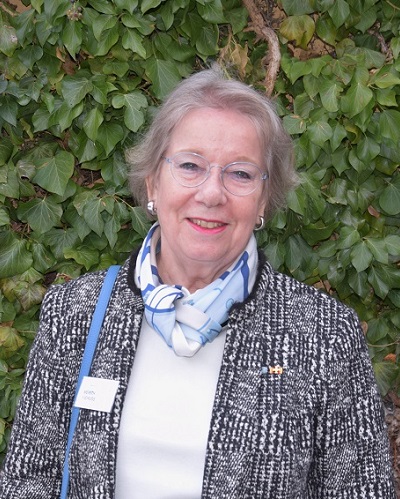
Based on a “special” university, the University of the Bundeswehr Munich, its former President Merith Niehuss illustrated how a strategic approach can be taken to security research. This institution engages in comprehensive research into security issues and has established a centre for cyber security with its own data centre (CODE), conducts research on satellite communication and navigation (SPACE) and does research in the area of aviation. In doing so, the university builds a bridge between the military and civilian spheres. The technology transfer between basic research and application and on to company start-up, and between the development of military and civil technology, she said, is being strengthened by the new “dtec.bw – Digitalization and Technology Research Center of the Bundeswehr”.
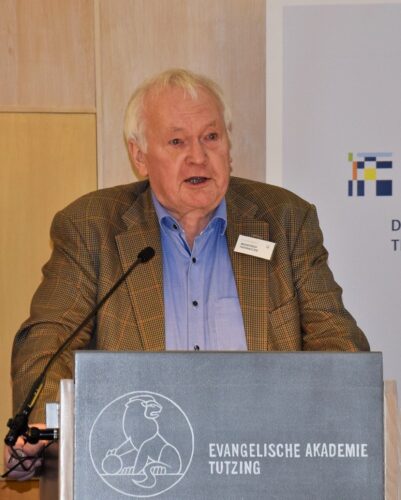
One of the things acatech member Manfred Hennecke commented on was the handling of the civil clause in universities and the role of military research in the German research landscape. He went on to say that the lack of integration of military research in the academic system had many disadvantages. He further said that, in general, it is not reasonable to universally and categorically rule out military research and flatly make it off-limits, something that came up many times during this conference. He believes that security and sovereignty require both civil and military research at the highest level, so this research should be incorporated into the German research system.
Research for military purposes – On the ethics of security research
The first day of the conference closed with a panel discussion moderated by Klaus Mainzer (acatech member, Technical University of Munich). This discussion centred on the ethical issues relating to research for military purposes. Friedrich Lohman, Professor of Protestant Theology at the University of the Bundeswehr Munich went into the conflict between ethics, military purposes and research. Therese Feiler, Research Associate at Institut TTN of LMU Munich, asked what notions of ethics have to be embedded in the technology – this is something that society would have to clarify. The purpose of political ethics, which takes in matters of security, the military and the associated technology, is to reflect on such processes. Friedrich Lohmann, Professor of Protestant Theology at the University of the Bundeswehr elaborated further on this idea: ethics does not provide answers; rather, it parallels decision-making. The civil clause ensures that military research has a different status to civil research and therefore requires different guidance. Martin Schulte, acatech member and Professor of Public Law at TU Dresden, also spoke in favour of a proceduralisation of the problem, which can be described as follows: science is essentially autonomous. The associated self-regulation is in line with the concept of freedom of research in the constitution, Mr Schulte pointed out. If the freedom of research comes into conflict with other constitutional rights, the situation must be weighed up.

In his specialist field, almost all research is dual use, stated Michael Zäh, Institute for Machine Tools and Industrial Management (iwb) of Technical University of Munich. Research into military technology is generally needed and of the essence: countries that send soldiers on missions abroad, he said, are responsible for ensuring that they have the best possible equipment. In any case, there is no avoiding the dual-use problem once researchers work with companies that operate in the defence sector.
European collaboration on defence in the 21st century
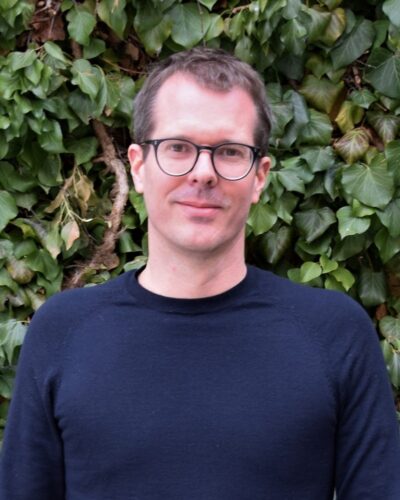
After an intensive first day, which revolved around science, research and ethics, the second day of the conference in Tutzing first centred on the perspective of various companies. Florian Keisinger (Airbus Defence and Space) focussed on FCAS (Future Combat Air System), a European defence programme: the aim of the programme is to establish common European air defences based on aircraft, drones and radar technology. However, the fact that only Germany, France and Spain are involved very clearly shows the challenges of coordinated arms projects within the EU. Many projects take the form of transnational partnerships rather than coordinated pan-European projects. Florian Keisinger furthermore underlined that while specific collaboration is desired at political level, it is not yet reality when it comes to armaments cooperation. Also, Mr Keisinger said that the complex processes of coordinating exports was still a stumbling block for nations within the EU with regard to reacting with speed and agility.
The role of national industrial consortia in the development of military technology
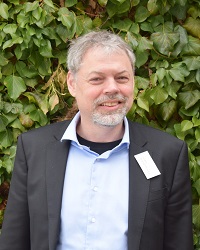
In addition to transnational projects in the arms industry, there is also close collaboration between German companies, as Armin Brandstetter (FCMS spokesperson, Hensoldt AG) pointed out in his speech. Disruptive innovations these days primarily start out as civil technologies and are subsequently militarised. The military advancement of technologies such as 3D printing, quantum computing and AI is possible for virtually “anyone” to do. To keep up with very rapid cycles of technological development, he said, new collaborations between very diverse players are required. Mr Brandstetter mentioned that it would be very difficult to put a stop to the militarisation of new technological developments, so it is essential to put in place protections against the increasing militarisation of future technologies. He underscored that ethical concerns must be addressed in the development of military systems and must be considered at the system design stage of machines. One option in this regard is to agree basic standards. A current standard being used by the companies making up the national consortium FCMS (Future Combat Mission System) – Hensoldt, Diehl Defence, Rohde & Schwarz and ESG – is “IEEE Standard Model Process for Addressing Ethical Concerns during System Design”. This is one potential way for AI to have a de-escalating effect in military systems.
Open Source Intelligence – Opportunities and challenges for future situation reports
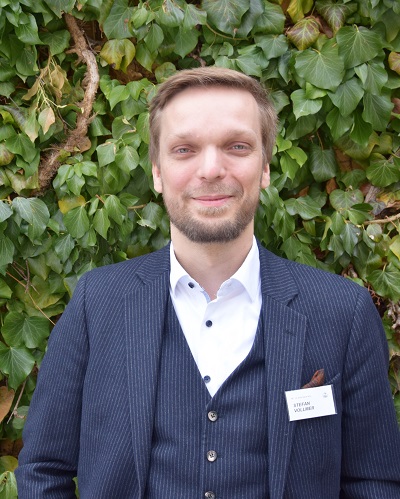
Stefan Vollmer (ESG Elektroniksystem- und Logistik-GmbH) focussed on developments towards Open Source Intelligence (OSINT), which is a current trend topic in the area of defence. Masses of data are being generated by the digitalisation of our daily lives and the widespread use of social media. OSINT is based on access to information gathered from freely available sources that are accessible to all and can be fed into targeted analysis, an “intelligence cycle”. The masses of data collected must be analysed in a targeted way, patterns identified and further refined via feedback mechanisms. The key here is efficient and targeted evaluation accompanied by a validity check of the information. The information obtained can be strategically used upstream for the purpose of early crisis detection, to draw up more exact situation reports on the ground and to provide needs-based information in a targeted way.
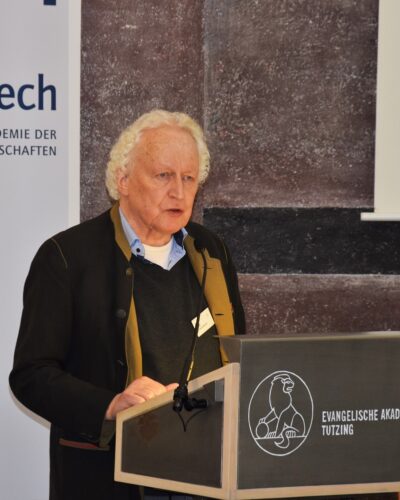
acatech member Udo Lindemann (Technical University of Munich) commented on the aforementioned developments. With extremely fast cycles of technological development, a balance must be struck between transience and long-lasting developments. This raises fresh questions about the prioritisation of investment: to what extent are supposedly expensive technologies worth it, and for how long can these be used? In view of the lightning pace of development of new systems, these must be urgently answered.
Technology and society: challenges facing military technology
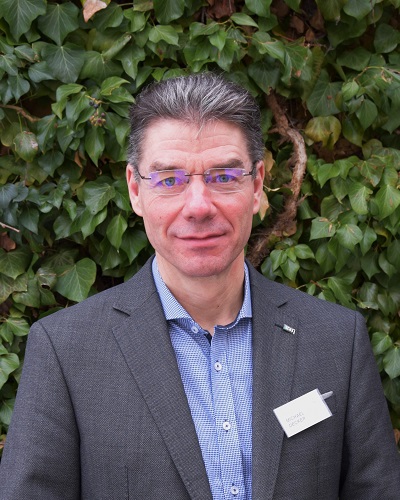
Michael Decker (Head of the “Informatics, Economics and Society” Division at the Karlsruhe Institute of Technology (KIT), acatech member) covered the whole gamut from the challenges facing military technology to public debates that the new security issues and the use of AI in the military arena are stimulating. Technological impact assessment is more important than ever in this context. It should always parallel innovation. Societal, political and ethical issues must always be incorporated and decided upon at the development stage of new military technology. Downstream political regulation, he said, always lags behind the developments. In a broad societal dialogue, a contextual framework for action must be developed with this in mind. Topics that are particularly controversial, like military technology, require very in-depth, open societal debate. Simply identifying patterns of perception of technologies in surveys proves inadequate: often the questions themselves are complicated and difficult to understand or even suggestive, and so the answers are not frank.
acatech President Jan Wörner summed up the conference as follows: it arrived at no definitive answers but did advance the overall dialogue between technology, industry, research and ethics. He emphasised the conflict shown between university research and commercial use. It is important, he said, to clarify where the responsibility lies. Ethical standards are important for this. The question is, who determines the decision criteria? Should ethics be a primary or secondary concern? The many questions raised cannot and do not need to be answered in a two-day conference, said Jan Wörner. However, they enrich the in-depth dialogue between science, business, politics and society about developments relating to security technology.
Our speakers’ answers to questions on the subject of military technology
Where should research on military technology be carried out?
Klaus Mainzer: As far as possible at public universities and universities of applied sciences, to ensure, among other things, that society is informed and made aware of matters of security. Depending on the research project, the researchers must meet special security requirements (e.g. non-disclosure agreements). However, in a democracy, the entire research field of military technology is subject to parliamentary oversight.
Merith Niehuss: In a safe place. However, very few universities are safe places for sensitive security research.
Armin Brandstetter: Since research is primarily concerned with the fundamentals, which cannot be separated into civil and military, it’s not really possible to answer this question. The fundamentals should be investigated in research institutions. A crossover should only take place where there are application-specific differences – by means of application-specific research (e.g. Bundeswehr universities, Fraunhofer, DLR) towards implementation/realisation by industry. The question is, does military technology-related research in the historical sense even exist any more?
Hartwig von Schubert: At joint European level.
Michael Decker: I think that military technology should be researched in an extramural setting. For, example, the Fraunhofer INT conducts defence future development analysis. The Helmholtz Association would also be a suitable candidate for the division of labour for extramural research. In line with its mission statement, it engages in research on the major and pressing questions of society.
Stefan Vollmer: In many cases, military technology cannot be separated from civilian technology (dual use). For that reason, research should be conducted in all research institutions. Not necessarily exclusively and specifically on military technology, yet always taking a broad view of how research can contribute to Germany’s internal and external security.
What contribution can universities or universities of applied sciences make to military technology? Should they make any contribution at all? Can they fulfil the security requirements for military research?
Klaus Mainzer: That depends on the topic of research and the security requirements a university can fulfil. The two Bundeswehr universities in Germany can fulfil the security requirements. Dual-use research should not be ruled out at public universities and universities of applied sciences but it should be clearly identified as such. In addition, discussion forums and training on social science and ethics should be held in parallel.
Merith Niehuss: Strictly speaking, “military technology” is not within the research remit of universities. However, the concept of dual use applies to countless research topics that technical universities in particular deal with. If we protect our digital data or our critical infrastructure against any hackers out there, then, at the same time, we will protect them against attacks by hostile states. If we conduct research into autonomous vehicles, this research can also be used for military purposes.
Armin Brandstetter: Depending on the university (universities of the Bundeswehr differ from a technical university). Within fundamental research there is very little military research; this only changes when it gets closer to application. Then, certainly, in specific cases, universities can make contributions. But this is not clear-cut either. Take, for example, Ukraine and the use of commercial drones. Of course, a university can drive the optimisation of drones completely unrelated to military use; it’s “repurposing” and specific deployment that militarises them.
Hartwig von Schubert: They should make contributions because in Germany the armed forces are the armed forces of society. They can if they and the powers backing university research want it.
Stefan Vollmer: First of all, “civilian” universities should also open up to military technology. However, there is still some defensiveness when it comes to these topics. So-called civil clauses in university regulations are often interpreted as being against military technology, even though, at their core, they concern sustainability, peace and democracy. These aims in no way rule out military technology.


